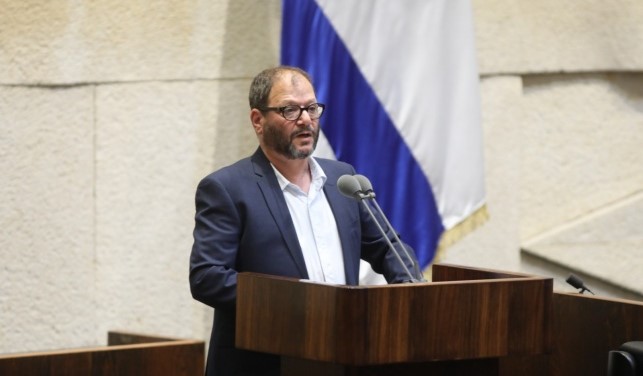Knesset members voted on Monday, May 21 to move forward controversial legislation that would expand the number of cabinet posts; this in an effort to woo potential far-right and clerical coalition partners into the government.
Casting their first legislative vote of the 21st Knesset, MKs voted 65 to 54 in favor of the bill to expand the cabinet from its current maximum of 21 members to an expected 26-28 ministers. The measure would repeal a 2014 law that limits the cabinet to 18, but which was temporarily amended in 2015 during coalition talks after that year’s election.
Having received government approval, the measure will now need to pass two further Knesset plenary votes before becoming law, a move the government wants to complete by the end of next week.
“This is a corrupt deal and political bribery is being offered up-front, before all of us,” said Hadash MK Ofer Cassif. “You are stealing budgetary funds from the public who need them. Don’t pretend to care about cancer patients or others who need more help when you are taking the money from under their noses for yourselves.”
If Benjamin Netanyahu fails to form a coalition by May 28, the task could be assigned to a different member of the Knesset. If no member of the legislature is likely to be able to form a government, the country could then face new elections.
Also on Monday, a close MK Likud ally of Netanyahu officially submitted legislation aimed at granting the prime minister immunity from prosecution. MK Miki Zohar’s bill was formally placed on the Knesset’s docket late Monday night along with 200 other proposals set to begin the legislative process in the coming weeks.
The bill proposes that Netanyahu and any other MK would by default be granted immunity from prosecution unless the Knesset House Committee — which Zohar himself chaired in the last legislative term and is expected to continue to helm throughout the 21st Knesset — votes to strip the lawmaker of that right. The bill would reverse the current system: Up till now, MKs must actively vote in favor of giving a colleague immunity against a pending indictment; under Zohar’s proposal they would have the power to block an indictment by refusing to approve the removal of MKs’ immunity.
In February, Attorney General Dr. Avichai Mandelblit announced his intention to indict Netanyahu, pending a hearing into three cases, dubbed by police Files 1000, 2000 and 4000. Charges include fraud and breach of trust in all three cases, and bribery in one of them.



